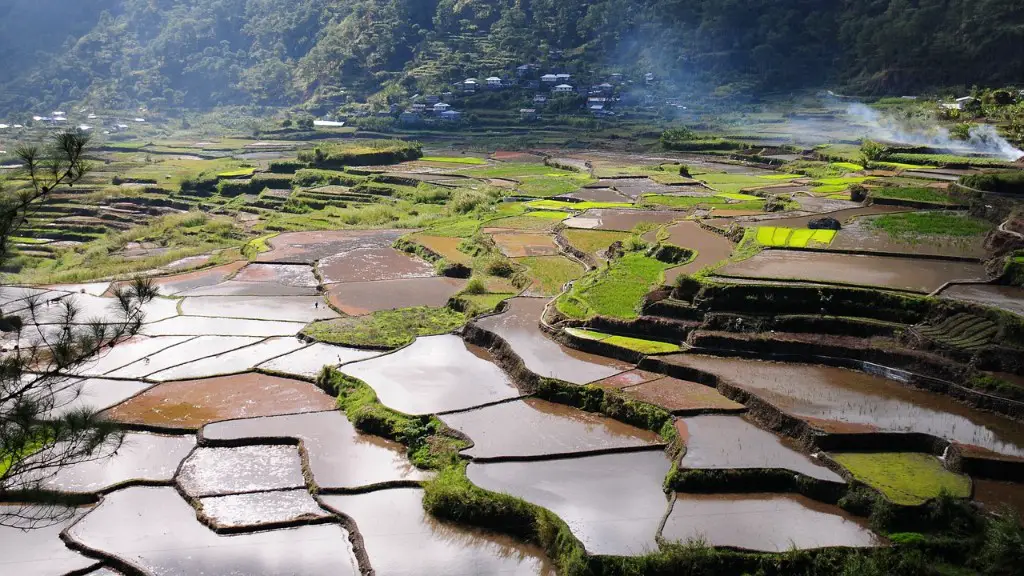Agriculture is a vital part of human civilization. It is the process of producing food, fiber, and other necessary goods by cultivation of crops and raising of livestock. Agriculture has been a part of human culture for over 10,000 years, and it is vitally important to the continued survival of our species.
As the world population continues to grow, the demand for food will only increase. It is estimated that by 2050 the world population will reach 9.7 billion people. This means that we will need to produce 70% more food than we do today just to keep up with demand.
With the world changing as rapidly as it is, it is more important than ever to advocate for agriculture. The future of our food security depends on it.
Advocating for agriculture is important because it is the backbone of the global food system. Without agriculture, the world would not have enough food to feed its growing population. Agriculture is also a major source of income and employment for many people around the world. By advocating for agriculture, we can help to ensure that farmers and other agricultural workers have the support they need to continue producing the food we need to survive.
What does it mean to advocate for agriculture?
An agricultural advocate is someone who supports the agriculture industry and helps to spread awareness about its importance. Advocates can be anyone from farmers to consumers, and their work helps to strengthen the agricultural community and educate others about the importance of agriculture.
Advocating for agriculture can help to ensure that farmers and ranchers have the resources they need to continue producing food and other products. Here are 10 steps that can be taken to advocate for agriculture:
1. Define important issues or challenges agriculture is facing locally, in your state or nationally.
2. Research and analyze statistics about agriculture in your area, your state or the nation.
3. Decide who you are trying to influence.
4. Determine what you want to accomplish.
5. Develop a plan of action.
6. Build relationships with key individuals and organizations.
7. Speak up for agriculture.
8. Write letters, make phone calls, and use social media to share your support for agriculture.
9. Attend meetings and events related to agriculture.
10. Be an active advocate for agriculture all year long.
What is agriculture and why is it important
Agriculture is a vital part of human civilization and has been practised for millennia. It is the process of cultivating natural resources to sustain human life and provide economic gain. Agriculture combines the creativity, imagination, and skill involved in planting crops and raising animals with modern production methods and new technologies. It is a complex and dynamic sector that is constantly evolving to meet the ever-changing needs of society.
The global agriculture industry is forecast to grow significantly in the coming years, due to factors such as population growth, urbanization, and changing dietary habits. This presents both challenges and opportunities for the sector. In order to meet the demand for food, agriculture must become more efficient and productive, while also ensuring that its practices are sustainable.
The future of agriculture depends on our ability to meet these challenges and seize the opportunities that lie ahead. With the right policies and investments, agriculture can continue to play a vital role in feeding the world and powering the economy.
Agriculture can help reduce poverty, raise incomes and improve food security for 80% of the world’s poor, who live in rural areas and work mainly in farming. The World Bank Group is a leading financier of agriculture, with a strong commitment to supporting developing countries achieve their poverty reduction and development goals. We provide financing and technical assistance for agriculture and rural development projects that aim to increase productivity and incomes, improve food security and nutrition, and create jobs.
What is the purpose of advocate?
An advocate is someone who speaks up for you and supports you in asserting your rights. They can help you to express your views and wishes, and can help you to stand up for yourself. Advocacy can be a very powerful tool in ensuring that your voice is heard and that you are able to get the support that you need.
There are many ways to get involved in environmental advocacy and legislation in your community. You can join an existing organization or start your own. You can also get involved in local politics and work with your elected officials to create change. Whatever way you choose to get involved, you can make a difference and help create a culture that supports the environment.
What are 5 important of agriculture?
Environmental advocates have been telling the public to recycle, reduce, and reuse for decades now, and that advice is still relevant today. Here are some well-known ways to help the environment:
1. Recycling: This conserves resources and energy and reduces pollution.
2. Conserving water: This reduces the strain on our water supplies and helps conserve energy used to pumped water.
3. Choosing alternatives to driving: This includes using public transportation, carpooling, biking, or walking.
4. Saving electricity: This conserves energy and reduces emissions of greenhouse gases.
5. Buying used: This conserves resources and energy used to produce new products.
6. Using reusable containers: This reduces waste and the need for disposable containers.
How can you promote agriculture in your community
The agricultural sector is a critical component of most economies, providing food, employment, and raw materials. However, the sector is often unstable, with prices fluctuating in response to weather, pests, and other factors. Enhancing agricultural sector stability can encourage economic growth and development, and reduce poverty and hunger.
There are a number of different priority sectors that can enhance agricultural sector stability. These include:
-Encouraging investment in agriculture that promotes area-based development. This can help to increase productivity and sustain Agricultural growth.
-Giving priority to investments that can increase and sustain productivity. This includes investments in irrigation, transport infrastructure, and agricultural research and development.
-Ensuring effective irrigation systems and an efficient transport infrastructure. This is essential for ensuring that crops can be grown in a wide range of conditions and that they can be transported to markets quickly and efficiently.
-Providing support for small-scale farmers and for those who are economically vulnerable. This can help to reduce the risk of farmers being forced out of business and can provide a safety net in times of crisis.
-Managing risk through insurance or other mechanisms. This can help to protect farmers from financial losses in the event of crop failure or other unforeseen
1. Agriculture is the main source of raw materials for industries.
2. Agriculture is important to international trade.
3. Agriculture plays a big role in a nation’s revenue.
4. Agriculture provides employment.
5. Agriculture is crucial to a country’s development.
6. Agriculture can help heal the environment.
7. Agriculture goes hand-in-hand with war.
8. agriculture is the main source of food.
9. Agriculture is a source of renewable energy.
10. Agriculture is important for the economy.
What are the impacts of agriculture to the society?
The pressure that agriculture exerts on the land and water resources of the earth is often the result of land degradation (such as soil erosion and salinization), and eutrophication. Agriculture is also associated with greenhouse gas emissions.
Agriculture is a vital sector of the economy, both in terms of its contribution to GDP and its role in providing food and raw materials. Its importance has been emphasised in recent years as a key driver of economic growth and development.
The sector has undergone significant transformation in recent decades, with productivity gains and technological advances resulting in increased output and export earnings. Agriculture now accounts for around 10% of GDP, with the sector’s export value reaching $34 billion in 2017/18.
There are around 2.6 million people employed in agriculture, making it one of the largest employers in the country. The sector is also an important source of livelihoods for rural communities.
The government is committed to supporting the sector and has implemented a number of initiatives to boost productivity and competitiveness. These include investments in research and development, infrastructure, and market access. The government is also working to improve the regulatory environment in order to reduce the cost of doing business and attract more private sector investment.
What are the benefits of advocating
Advocacy can help workers focus on what they want to do and help them represent their community’s views accurately. It can also include influential people in health education and action.
Community advocacy can be a very effective way for people to take control of their lives and address health and social care issues. This approach provides people with the knowledge and skills to be their own best advocates, and can help them to overcome difficulties and achieve their goals.
What is the advantage of advocacy?
Advocacy is about empowering people to speak up and be heard on the issues that matter to them. It is a way of bringing attention to these issues and mobilizing others to take action. Advocacy is important to influence policy development and to evidence the strategy.
The environment is important for several reasons. The first is that we need to avoid the exploitation of natural resources. If we continue to use up resources without replenishing them, eventually we will run out. Additionally, it is important to keep balance in our ecosystem. All the different species and ecosystems on Earth are interconnected, and if one part of the system is disrupted, it can cause problems for the whole. Another reason to conserve the environment is to prevent human-caused natural disasters. For example, if we clear too much land for farming or development, it can lead to soil erosion and flooding. Deforestation can also cause droughts. By taking care of the environment, we can help reduce the impact of global warming and climate change. Finally, environmental conservation can bring awareness to some other important initiatives. For example, it can help raise awareness about pollution and the importance of recycling.
How can you advocate environment to the community
We all need to do our part to help protect the environment. Here are a few simple ways we can make a difference:
1. Call or write to people in government who represent you, at the local and state level.
2. Call or write to corporate headquarters.
3. Keep reusable bags in your car and take them with you as you shop.
4. Compost food waste.
5. Reduce, reuse, and recycle.
6. Bring your own cup or water bottle when you go out.
7. Turn off lights and electronics when you’re not using them.
8. Plant trees and gardens.
9. Advocate for clean energy sources.
10. Spread the word to family and friends about why it’s important to be green!
Aside from the gained awareness, students benefit more from this kind of training as it develops sustainable lifestyles. Humans consume more than what our Earth can offer butBy living a sustainable lifestyle, we can help to preserve the environment for future generations. Additionally, this kind of training encourages healthy lifestyles. A healthy lifestyle is not only good for the individual, but also has a positive impact on the community and the environment. Furthermore, it inspires awe and teaches respect. Awe is the emotion that we feel when we behold something that is beautiful or majestic. By teaching respect, we can learn to appreciate the environment and all of its inhabitants. Finally, this kind of training promotes proactiveness. Proactive individuals are more likely to take action to protect the environment. They are also more likely to be leaders in their communities, inspire others to live sustainably, and make a positive difference in the world.
Conclusion
Advocating for agriculture is important because it is the foundation of our food system. Agriculture is responsible for producing the food we eat, and it is a critical part of the global economy. Without a strong agriculture sector, our food supply would be at risk.
It is important to advocate for agriculture because it is essential for human survival. Agriculture provides us with food, clothing, shelter, and many other necessities. Without agriculture, we would not be able to survive.





